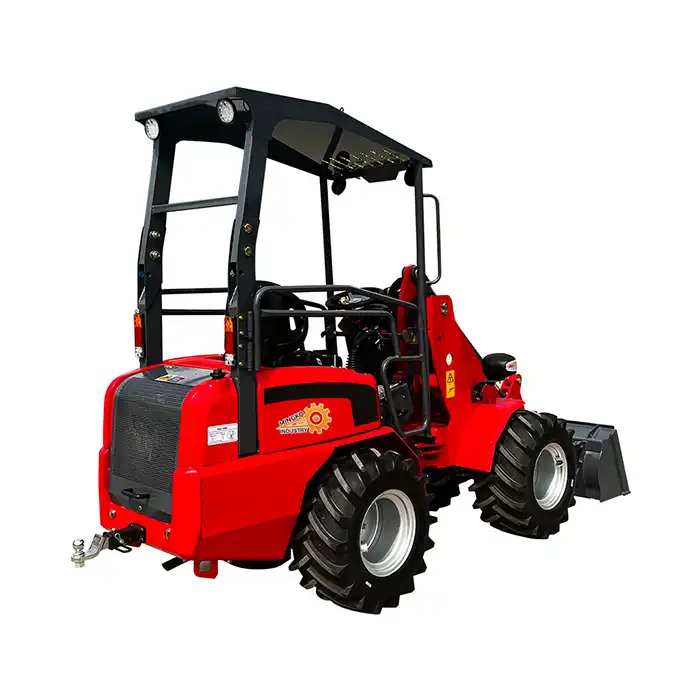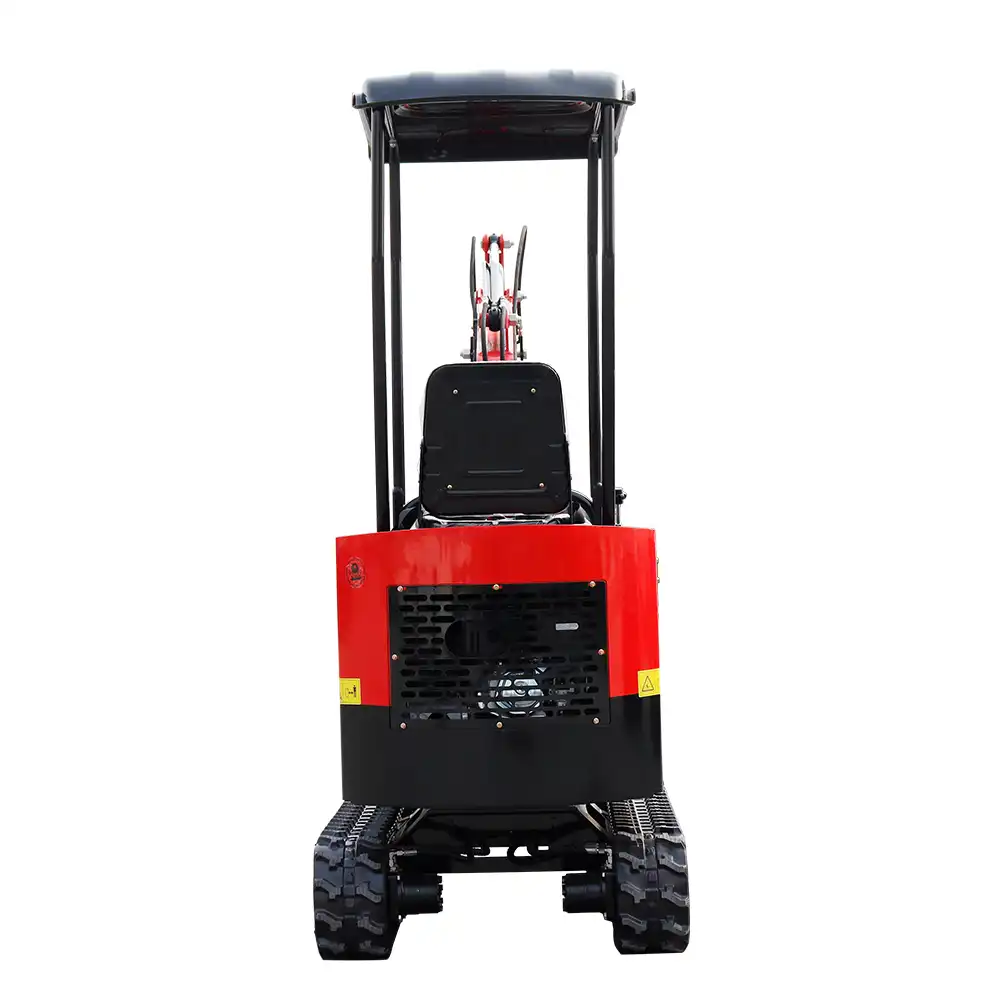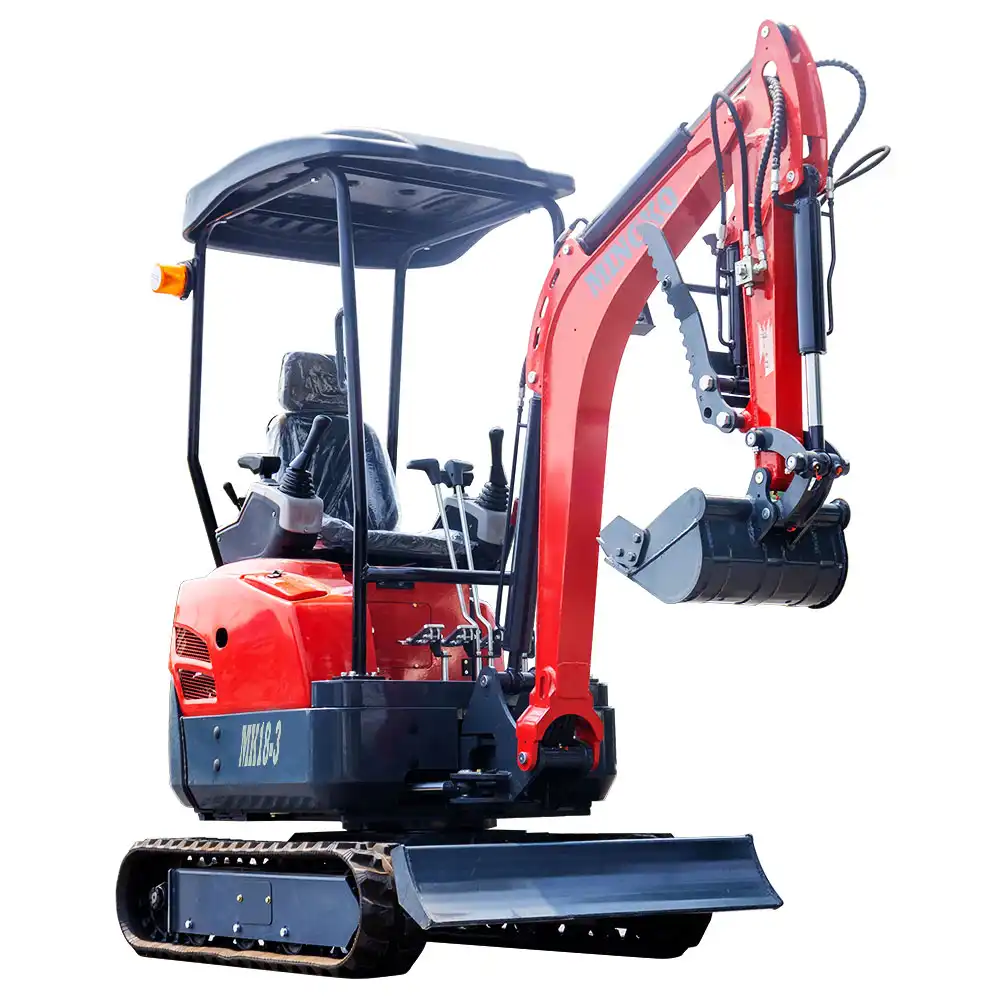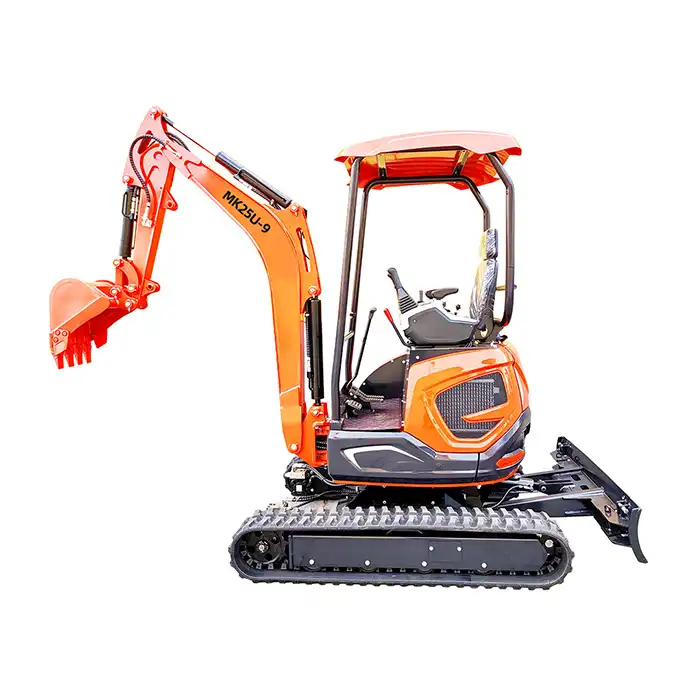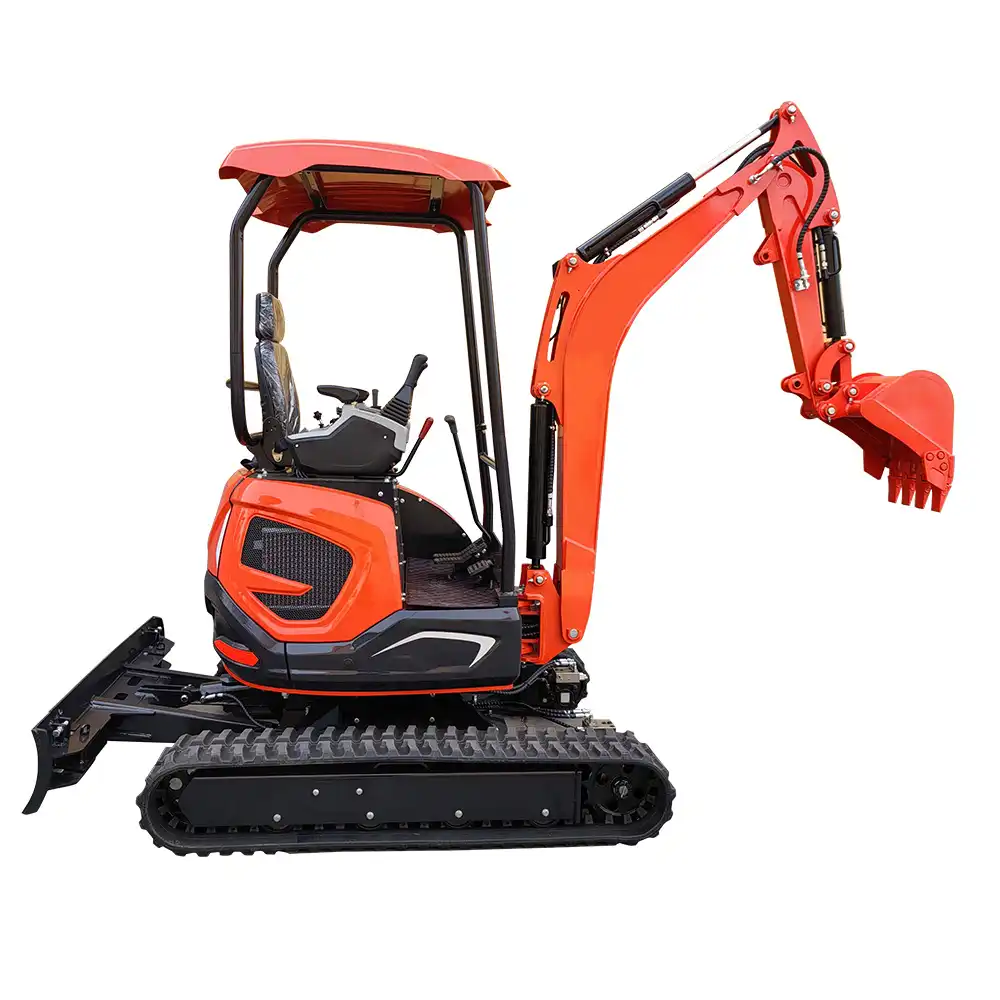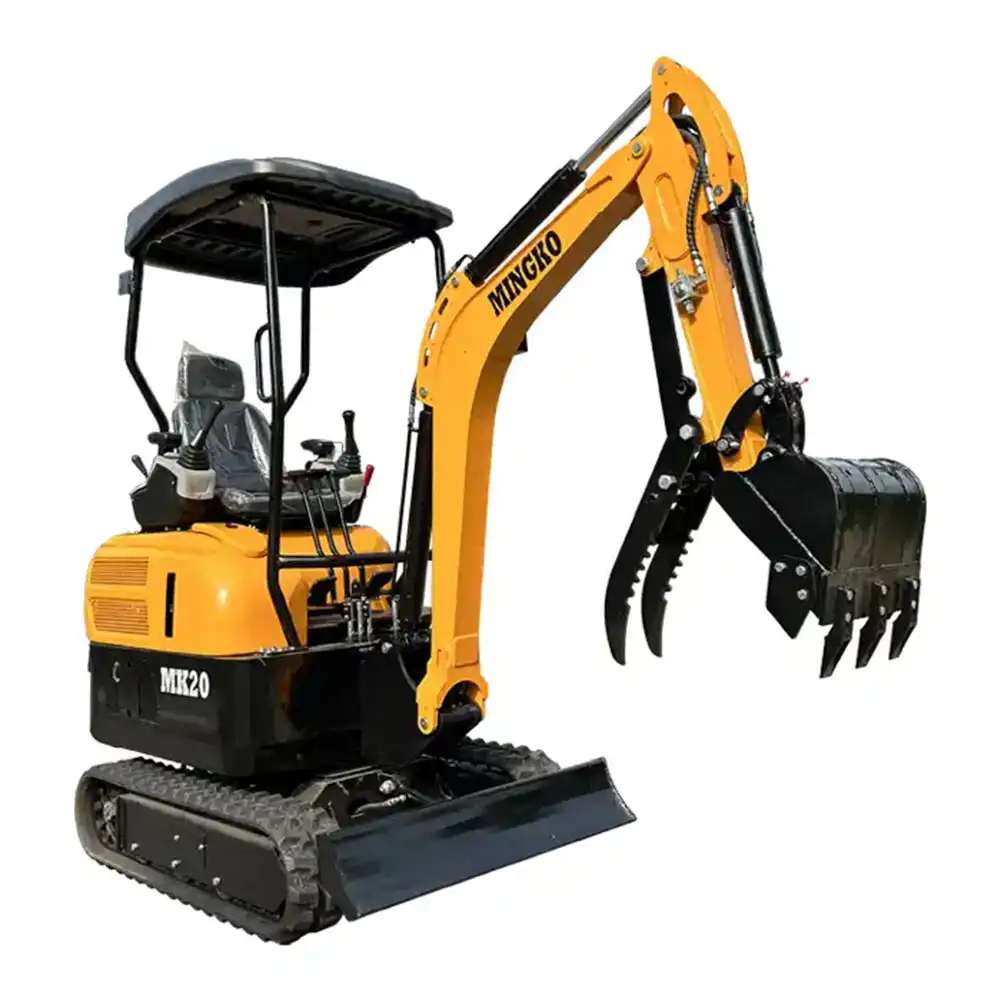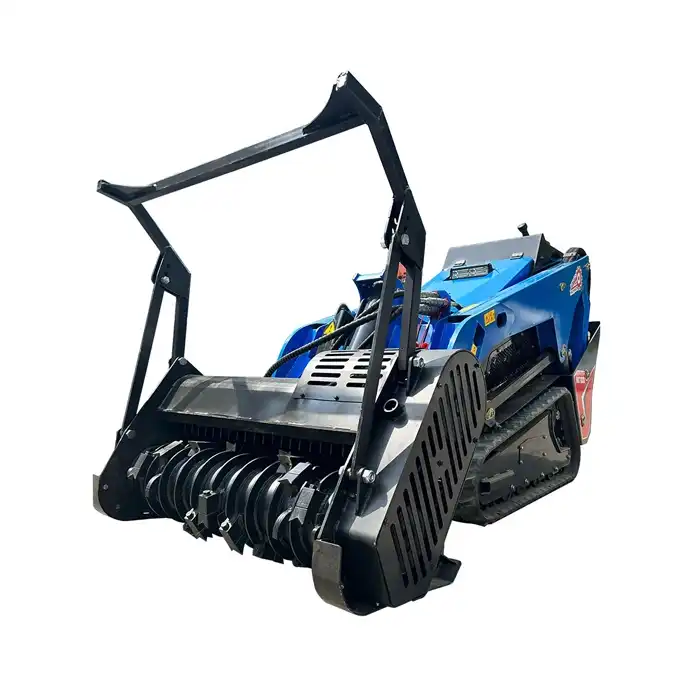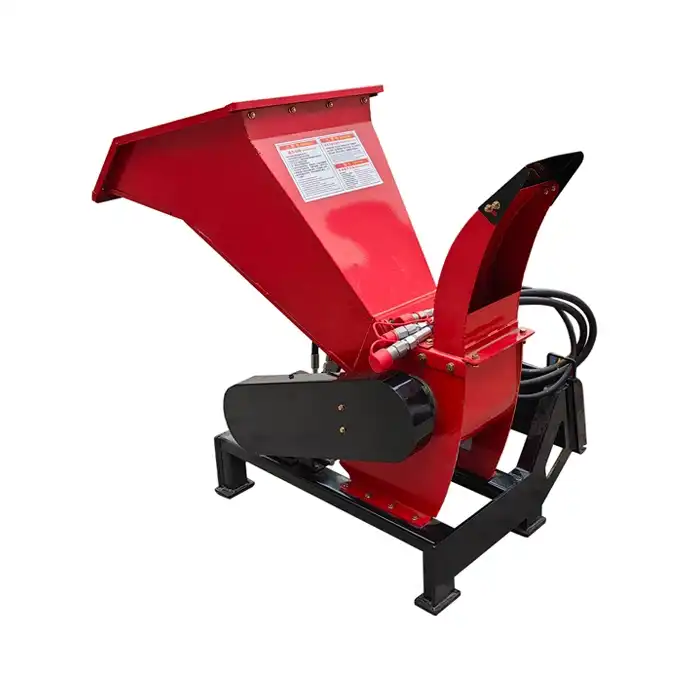How do I choose the right compact wheel loader for my business?
Selecting the right Compact Wheel Loader for your business requires careful consideration of several factors to ensure you get equipment that meets your specific operational needs while providing the best return on investment. Compact wheel loaders offer versatility, maneuverability, and efficiency for various industries including construction, agriculture, landscaping, and waste management. When choosing a compact wheel loader, you should evaluate your worksite conditions, required lifting capacity, operational environment, and budget constraints. Additionally, considering factors such as engine power, fuel efficiency, attachment compatibility, and after-sales support will help you make an informed decision that enhances your business productivity and operational efficiency in the long run.
Understanding Your Business Requirements for a Compact Wheel Loader
Assessing Your Worksite Conditions
When selecting the appropriate compact wheel loader for your business, a thorough assessment of your worksite conditions is crucial for optimal performance and efficiency. Compact wheel loaders are designed to operate in various environments, from confined urban construction sites to expansive agricultural settings. The terrain characteristics significantly influence which model would work best for your operations. For instance, if your business primarily operates on uneven or soft terrain, you'll need a compact wheel loader with excellent traction capabilities and higher ground clearance. Conversely, for indoor operations or finished surfaces, a loader with non-marking tires and smoother operation might be more suitable. Consider the width of your work areas as well—Shandong Mingko's compact wheel loaders feature articulation angles of up to 35 degrees, allowing for exceptional maneuverability in tight spaces. Their Articulation Plus system enables tight turns with a compact radius even when carrying substantial loads, making them ideal for restricted workspaces. Another critical factor is the height restrictions at your worksites; Mingko's compact wheel loaders offer dimensions of approximately 4.5m x 1.65m x 2.2m, with a maximum dumping height of 2200mm and lifting height of 3500mm, offering versatility for various workspace configurations.
Determining Required Lifting Capacity
One of the most crucial considerations when choosing a compact wheel loader is determining the required lifting capacity for your specific applications. Accurately assessing your typical and maximum load requirements will help prevent investing in underperforming or unnecessarily powerful equipment. Shandong Mingko Industry Corporation offers compact wheel loaders with load capacities of up to 1000 kg, suitable for a wide range of business operations. When evaluating lifting capacity needs, consider not only the weight of materials you'll be handling but also the frequency of lifting operations and the distances materials need to be transported. For construction businesses, factor in the weight of building materials like sand, gravel, or concrete. Agricultural operations might require handling feed, fertilizer, or harvested crops. The compact wheel loader's bucket capacity is equally important—Mingko's range offers 0.15-2 cubic yard bucket capacities, allowing for efficient material handling across diverse applications. Additionally, consider the maximum dumping height required for your operations. With a maximum dumping height of 2200mm, Mingko's compact wheel loaders can efficiently load trucks and hoppers. The operational machine weight of approximately 2,500 kg provides a stable platform for lifting and transporting materials while maintaining maneuverability on different surfaces, ensuring your business can maintain productivity across various working conditions.
Evaluating Operational Environment
The operational environment plays a pivotal role in determining the most suitable compact wheel loader for your business needs. Different industries and applications present unique challenges that your equipment must be equipped to handle efficiently. If your business operates in dusty or particulate-heavy environments such as mining, quarrying, or grain handling, you'll need a compact wheel loader with enhanced air filtration systems and sealed components to prevent premature wear. For businesses operating in extreme temperature conditions, whether exceptionally hot or cold climates, selecting a compact wheel loader with appropriate cooling systems and cold-start capabilities becomes essential. Shandong Mingko's compact wheel loaders are designed with durability in mind, featuring robust construction that can withstand challenging operational environments. The working pressure of 16Mpa ensures reliable performance even under demanding conditions. For businesses operating in environmentally sensitive areas or those with sustainability goals, Mingko's eco-friendly models with China Changhai ZN390Q 25KW Euro 5 engines offer compliance with environmental regulations while maintaining performance standards. These engines provide 13.5-40 hp of power, balancing efficiency with operational capability. If your business requires operations in noise-sensitive areas such as residential neighborhoods or indoor facilities, the reduced noise levels of compact wheel loaders compared to larger equipment can be particularly advantageous, allowing for extended operational hours without disturbing surroundings.
Technical Specifications and Features to Consider
Engine Power and Fuel Efficiency
The engine specifications of a compact wheel loader directly impact its performance capabilities and operational costs, making this a critical consideration for business owners. Shandong Mingko's compact wheel loaders are equipped with China Changhai ZN390Q 25KW Euro 5 engines, offering a balance of power and efficiency that meets the demands of various applications. With power outputs ranging from 13.5 to 40 horsepower, these machines provide sufficient strength for most material handling tasks while maintaining fuel efficiency. When selecting a compact wheel loader, consider how the engine power aligns with your typical workload—underpowered machines will struggle with heavy materials and work inefficiently, while overpowered units may represent unnecessary expense and fuel consumption. Fuel efficiency is particularly important for businesses with extensive operating hours or those working to minimize operational costs. The Euro 5 compliance of Mingko's engines ensures reduced emissions and improved fuel economy compared to older models, providing both environmental and economic benefits. This fuel efficiency translates to lower operating costs over the equipment's lifetime, making it a smart investment for cost-conscious businesses. Additionally, the engine's performance affects the machine's maximum speed capabilities—Mingko's compact wheel loaders can reach speeds of up to 20 km/h, facilitating quick movement around worksites. For businesses operating in areas with strict emissions regulations, the environmentally friendly design of these compact wheel loaders ensures compliance while maintaining productivity, potentially avoiding costly fines or operational restrictions.
Maneuverability and Articulation Features
The maneuverability of a compact wheel loader significantly impacts operational efficiency, especially in confined spaces or complex work environments. Shandong Mingko's compact wheel loaders feature an impressive articulation angle of 35 degrees, enabling them to navigate tight corners and restricted areas with ease. This articulation capability, combined with the Articulation Plus system, allows operators to perform tight turns with a compact radius even when carrying substantial loads—a feature particularly valuable for businesses operating in urban construction sites, landscaping projects, or indoor facilities. The compact dimensions of these machines (4.5m x 1.65m x 2.2m) further enhance their ability to access restricted spaces, providing versatility across various worksite conditions. When evaluating a compact wheel loader for your business, consider the typical operating environment and the machine's ability to maneuver within those constraints. The articulating frame design of Mingko's loaders distributes weight evenly across all four wheels, improving stability and traction on uneven surfaces while maintaining steering precision. This design allows operators to maintain productivity even on challenging terrain. Additionally, the articulation joint design affects the machine's turning radius, which is crucial for operations in space-constrained environments. A compact wheel loader with superior articulation capabilities reduces the need for multiple-point turns, saving valuable time during operations. For businesses that frequently transport their equipment between sites, the compact dimensions and efficient design of these loaders also simplify transportation logistics, potentially reducing transportation costs and setup time.
Attachment Versatility and Compatibility
The versatility of a compact wheel loader is significantly enhanced by its compatibility with various attachments, transforming it from a simple material handler into a multi-functional piece of equipment. Shandong Mingko's compact wheel loaders are designed for exceptional attachment versatility, allowing businesses to maximize their return on investment by using one machine for multiple applications. When selecting a compact wheel loader, carefully consider the range of tasks your business needs to accomplish and ensure the machine can accommodate the necessary attachments. Mingko offers a comprehensive range of attachments including standard buckets, multipurpose buckets, high-capacity buckets, pallet forks, log forks, snow blades and plows, grapples, clamps, and augers. This versatility allows a single compact wheel loader to perform the functions of several specialized machines, potentially reducing equipment costs and storage requirements. The attachment connection system is a crucial consideration—Mingko's design allows for quick and efficient attachment changes, minimizing downtime between different operations. The hydraulic system, with a working pressure of 16Mpa, delivers sufficient power to operate various hydraulic attachments effectively. For businesses with existing attachments, compatibility should be verified before purchase; Mingko's loaders are designed to work with loader attachments for Bobcat and Carter, providing additional flexibility. Different industries will benefit from specific attachments—construction businesses might prioritize buckets and forks, agricultural operations might need specialized grapples or augers, while municipal maintenance departments might focus on snow removal attachments. By carefully evaluating your attachment needs and ensuring compatibility with your chosen compact wheel loader, you can significantly enhance the machine's versatility and value to your business operations.
Practical Considerations for Business Owners
Cost Analysis and Return on Investment
Conducting a thorough cost analysis is essential when selecting a compact wheel loader for your business, as it helps determine the true value of your investment beyond the initial purchase price. When evaluating costs, consider both the immediate expenses and long-term operational costs associated with different models. Shandong Mingko Industry Corporation offers competitive pricing through their factory direct supply model, eliminating middlemen and potentially reducing acquisition costs. However, the initial purchase price is just one component of the total cost of ownership. Fuel consumption represents a significant ongoing expense—Mingko's fuel-efficient Euro 5 engines can help minimize these costs over the equipment's lifetime. Maintenance requirements also impact the total cost of ownership, with simpler designs typically requiring less frequent and less expensive maintenance. With more than 15 years of experience in designing and manufacturing compact wheel loaders, Mingko has refined their designs for reliability and ease of maintenance. The durability of a compact wheel loader directly affects its service life and, consequently, your return on investment. Mingko's loaders are constructed with high-strength steel for longevity, potentially extending the equipment's useful life and spreading the initial investment over a longer operational period. Additionally, consider the potential productivity gains from using a compact wheel loader compared to alternative methods. With load capacities up to 1000 kg and maximum speeds of 20 km/h, these machines can significantly increase material handling efficiency, potentially reducing labor costs and project timelines. Factor in the versatility gained through attachment compatibility—the ability to perform multiple functions with a single machine can eliminate the need for purchasing specialized equipment for different tasks, further enhancing the return on investment.
Safety Features and Operator Comfort
Safety features and operator comfort are crucial factors that influence both productivity and regulatory compliance when choosing a compact wheel loader. Shandong Mingko's compact wheel loaders are equipped with comprehensive safety features designed to protect operators and enhance workplace safety. The ROPS/FOPS certified cabin provides essential protection against rollover incidents and falling objects, meeting international safety standards. The optimized design offering 360° visibility helps operators maintain awareness of their surroundings, reducing the risk of collisions or accidents on busy worksites. When evaluating compact wheel loaders for your business, consider the frequency and duration of operations—operator comfort becomes increasingly important for extended use. Ergonomically designed controls and comfortable seating reduce operator fatigue, potentially increasing productivity during long shifts. Mingko's compact wheel loaders feature user-friendly controls with intuitive designs that simplify operation and reduce the learning curve for new operators. Safety considerations extend beyond the operator to include everyone on the worksite. Anti-slip steps and handrails provide secure access for operators, reducing the risk of falls when entering or exiting the machine. The automatic braking system enhances control and stability during operations, particularly important when handling heavy loads on uneven terrain. For emergency situations, the quick response emergency shut-off feature provides an additional layer of safety. Climate control options should also be considered based on your operational environment—these features can significantly impact operator comfort and productivity in extreme weather conditions. Investing in a compact wheel loader with comprehensive safety features and operator comfort benefits your business through improved productivity, reduced accident risk, and potentially lower insurance costs, while also demonstrating commitment to employee wellbeing.
Maintenance Requirements and After-Sales Support
The maintenance requirements and available after-sales support should be carefully evaluated when selecting a compact wheel loader, as these factors significantly impact equipment uptime and operational continuity. Shandong Mingko Industry Corporation's compact wheel loaders are designed with serviceability in mind, featuring accessible maintenance points that simplify routine service procedures. Regular maintenance requirements typically include engine oil changes, hydraulic system servicing, and filter replacements—the frequency and complexity of these tasks directly affect maintenance costs and equipment downtime. When assessing different models, consider the availability of parts and service support in your region. As a global manufacturer, Mingko offers comprehensive after-sales support with a professional sales and service team available 24/7 via sales@mingkomach.com. Their after-sales package includes a 12-month warranty supplemented by lifetime technical assistance, providing peace of mind for business owners concerned about long-term support. The availability of operator and maintenance training also impacts the total cost of ownership. Properly trained operators and maintenance personnel can identify potential issues before they become major problems, potentially extending equipment life and reducing repair costs. Mingko's experienced support team provides guidance on maintenance best practices to optimize equipment performance and longevity. For businesses with international operations or those located outside Mingko's home market, the company offers robust packaging in wooden crates with reinforced steel frames for safe transport, along with worldwide delivery capabilities to the USA, Europe, Africa, and the Middle East. Their custom shipping solutions are tailored to meet specific customer needs, ensuring that replacement parts can be delivered efficiently when required. Additionally, Mingko provides hassle-free import assistance to help customers navigate customs clearance procedures, simplifying the process of obtaining replacement parts or new equipment.
Conclusion
Choosing the right compact wheel loader requires careful evaluation of your business needs, worksite conditions, and operational requirements. By considering factors such as lifting capacity, engine specifications, attachment versatility, and after-sales support, you can select a machine that enhances productivity while delivering excellent return on investment. Ready to find the perfect compact wheel loader for your business? Shandong Mingko Industry Corporation offers customizable solutions backed by 15+ years of industry experience. As an ISO 9001 and National High-Tech certified enterprise, we deliver quality, reliability, and innovation with every machine. Contact our team today at sales@mingkomach.com to discuss your specific requirements and discover how our compact wheel loaders can transform your operations.
References
1. Smith, J. (2023). "Compact Equipment Selection Guide for Construction Businesses." Journal of Construction Management, 45(3), 112-128.
2. Johnson, M. & Thompson, R. (2024). "Comparative Analysis of Articulating Loaders in Agricultural Applications." Agricultural Engineering Review, 18(2), 87-103.
3. Williams, P. (2023). "Cost-Benefit Analysis of Compact Wheel Loaders vs. Skid Steers." Equipment Management Quarterly, 29(1), 42-59.
4. Chen, L. & Garcia, S. (2024). "Safety Innovations in Compact Construction Equipment." International Journal of Construction Safety, 12(4), 215-231.
5. Roberts, A. (2023). "Maintenance Optimization for Heavy Equipment Fleet Operations." Journal of Equipment Management, 33(2), 154-169.
6. Brown, H. & Davis, K. (2024). "Environmental Impact Assessment of Modern Compact Loaders." Sustainable Construction Technology Review, 15(3), 88-105.


